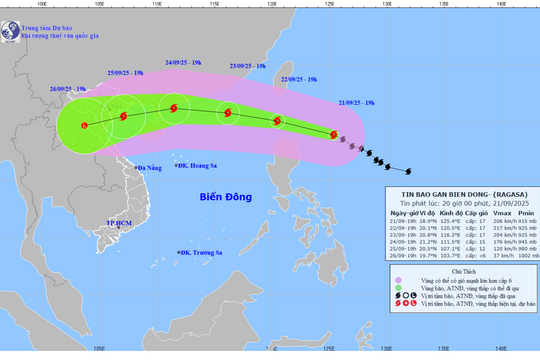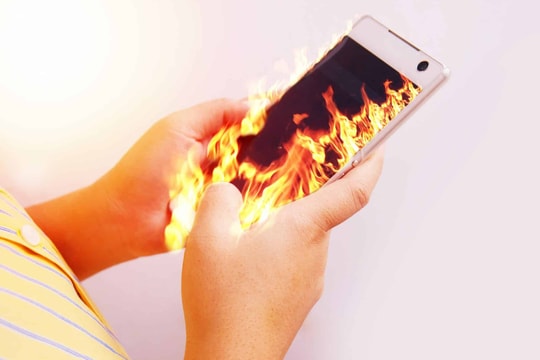Warnings to prevent diseases caused by heat
In hot weather, many diseases can appear and increase, especially infectious diseases. So, what should we do to effectively prevent diseases in hot weather?
There are many reasons why diseases increase during the hot season. First of all, the hot weather at the beginning of the season makes the body unable to adapt immediately, leading to some diseases, especially when suddenly changing from cold to hot or vice versa.
During the hot season, people often encounter unsanitary soft drinks, ice cream, or eat uncooked foods or foods that have been left unpreserved for too many hours, which can easily lead to food poisoning and digestive disorders (diarrhea).
The rate of sunstroke and heatstroke also increases due to the ultraviolet rays of the sun shining on the nape of the neck when going out in the sun without wearing a wide-brimmed hat or bareheaded, especially children playing, people bathing in rivers, streams, lakes, ponds, and the sea in the hot sun. In addition, diseases are carried by insects (carrying pathogens from sick people to healthy people such as dengue fever, malaria...) or diseases from animals to humans.
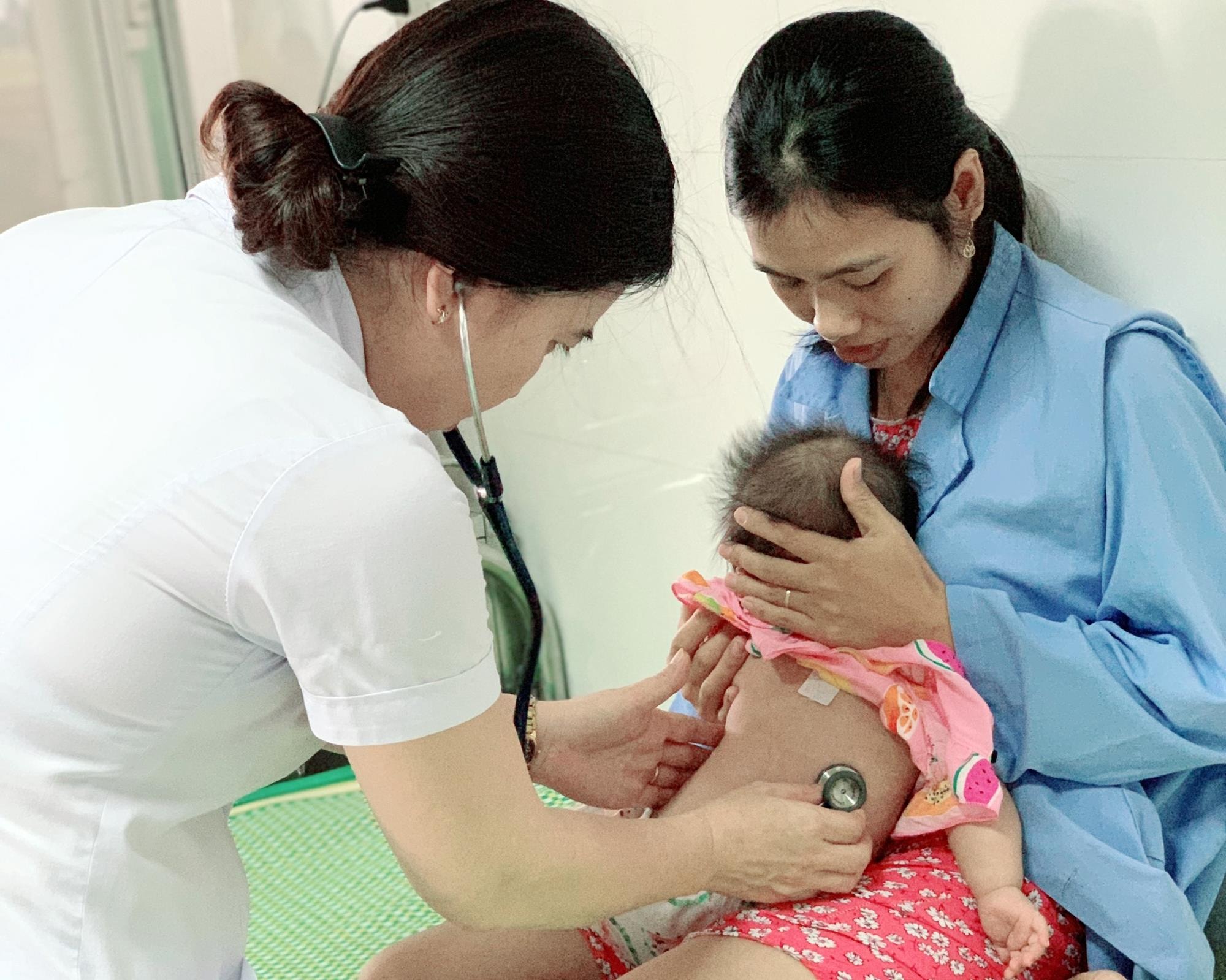 |
| In hot weather, children are susceptible to respiratory, digestive and ear, nose and throat diseases. Photo courtesy of Thanh Hoa |
Some diseases often occur in hot weather
A fairly common disease is sunstroke, heatstroke. Sunstroke is caused by exposure to ultraviolet rays of sunlight or being in an air-conditioned room with low temperature, going outside or bathing in a river, lake or sea when the sun is hot, the temperature is high.
Because when the outdoor temperature reaches 38 - 39 degrees Celsius, or even higher, the most common phenomenon is heatstroke in both adults and children, due to the body losing a lot of water due to sweating, and serious disorders in body temperature regulation when exposed to harsh sunlight, especially the nape of the neck.
Some digestive diseases are common in the hot season due to infection with cholera bacteria or dysentery bacteria or typhoid bacteria or E.coli, especially can spread to many other people creating epidemics.
When the weather is too hot, if the fan is turned on at high speed or in an air-conditioned room with a temperature that is too different from the outside environment, there is a risk of drying out the throat area, the mucus that protects the respiratory tract dries out, creating favorable conditions for microorganisms to grow, especially bacteria and fungi that invade and cause respiratory infections, especially adenoiditis, tonsillitis, laryngitis, acute bronchitis, and more seriously, pneumonia.
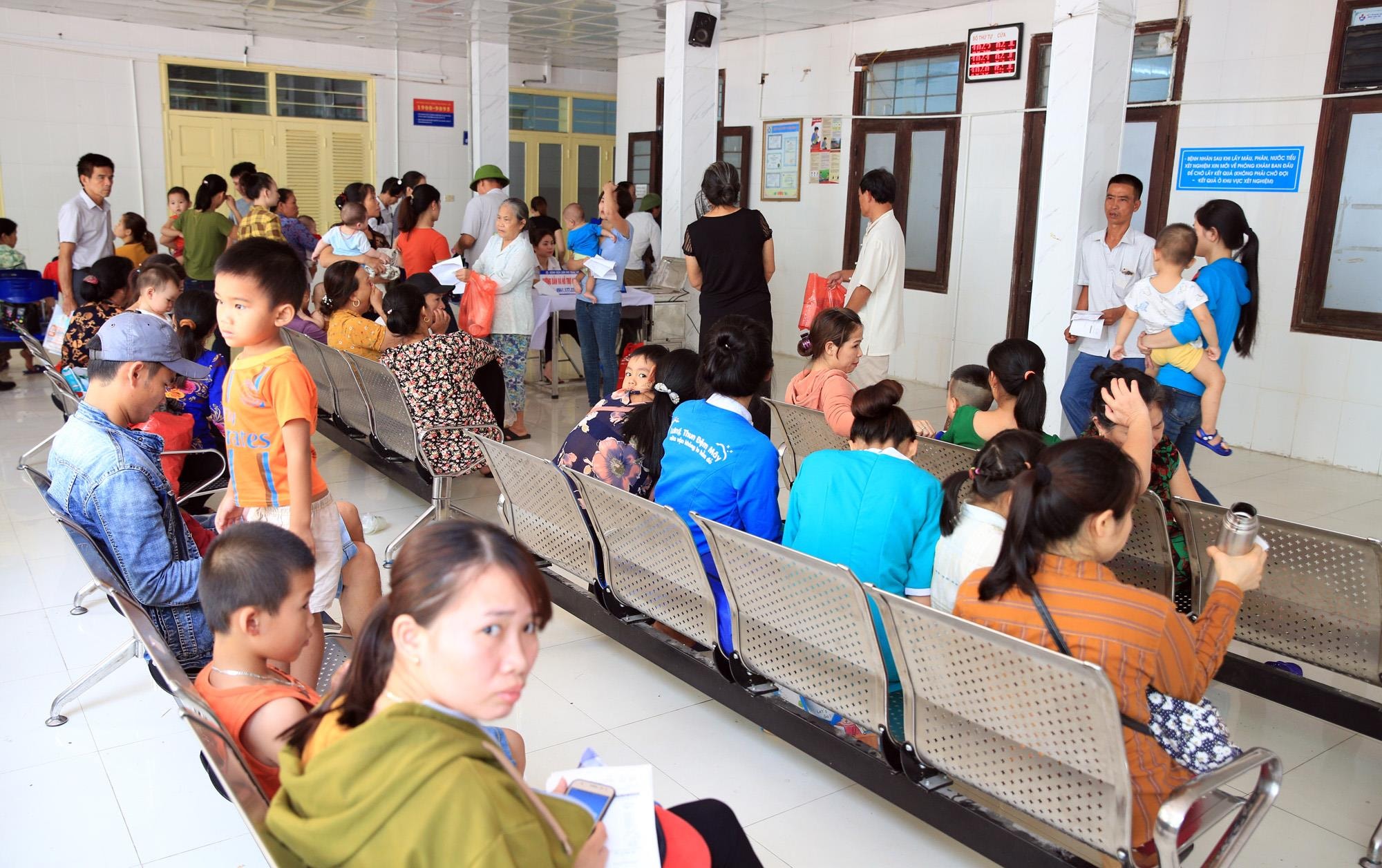 |
| In the hot weather, many parents bring their children to Nghe An Maternity and Pediatrics Hospital for medical examination and treatment. Photo courtesy of Thanh Chung |
In summer, the harsh sunlight is not good for the heart. The heart has to work harder and faster, causing the pulse to beat faster and blood pressure to increase, especially for people with heart disease, high blood pressure, atherosclerosis, which can cause lack of oxygen, unconsciousness, myocardial infarction or stroke.
In addition, if you sit in an air-conditioned room for too long, especially for office workers, long-distance drivers (cars with air conditioning)... when going out in hot weather, sudden changes in temperature can easily cause rhinitis, pharyngitis, sinusitis, bronchitis. Drinking ice cold water is also a cause of pharyngitis, especially in children.
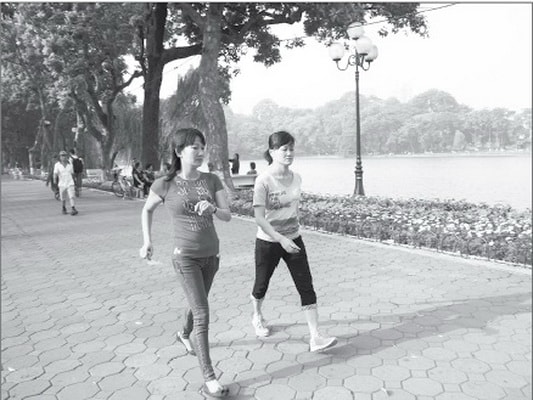 |
| Exercise regularly to prevent disease. Photo: TM |
Disease prevention in hot weather
When it is hot, you should wear a hat or sun-protective clothing (women) when going out. It is best not to swim in rivers, seas, lakes, streams when the sun is strong, especially at noon or late afternoon. Do not use a fan at high speed, blowing air at people, especially children and the elderly. If using air conditioning, it should be set at a temperature of about 25-26 degrees.
Every time you come back from the sun, you should not go into the air-conditioned room immediately, especially children and the elderly. The floor, eating utensils, and children's toys need to be cleaned daily. You need to clean your hands before and after eating and after using the toilet by washing your hands with appropriate soap. You need to sleep under a mosquito net to avoid mosquito bites. You need to kill mosquitoes, cockroaches, rats, and fleas to avoid diseases that they transmit from sick people to healthy people.
It is necessary to eat hygienically, eat cooked food, drink boiled water, and drink enough water every day. Children should be fully vaccinated according to medical recommendations. Adults and older children need to exercise regularly every day with morning exercises.


